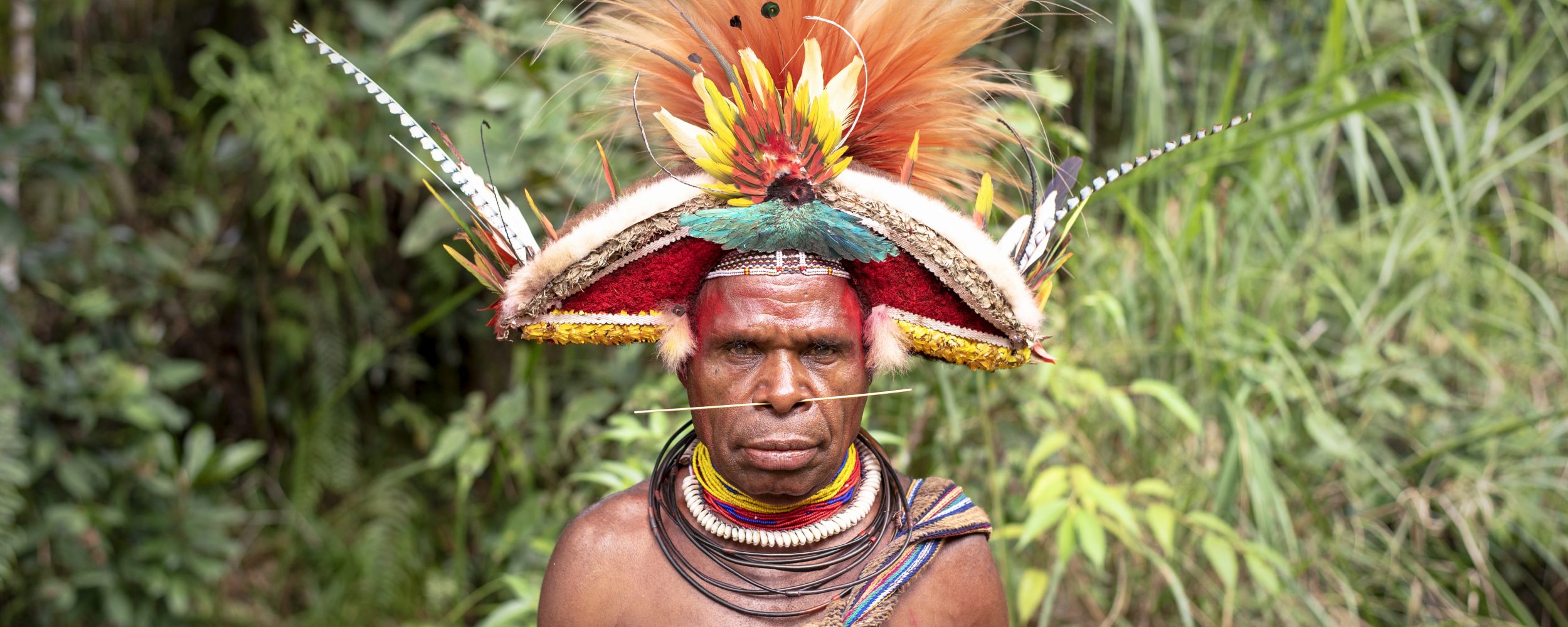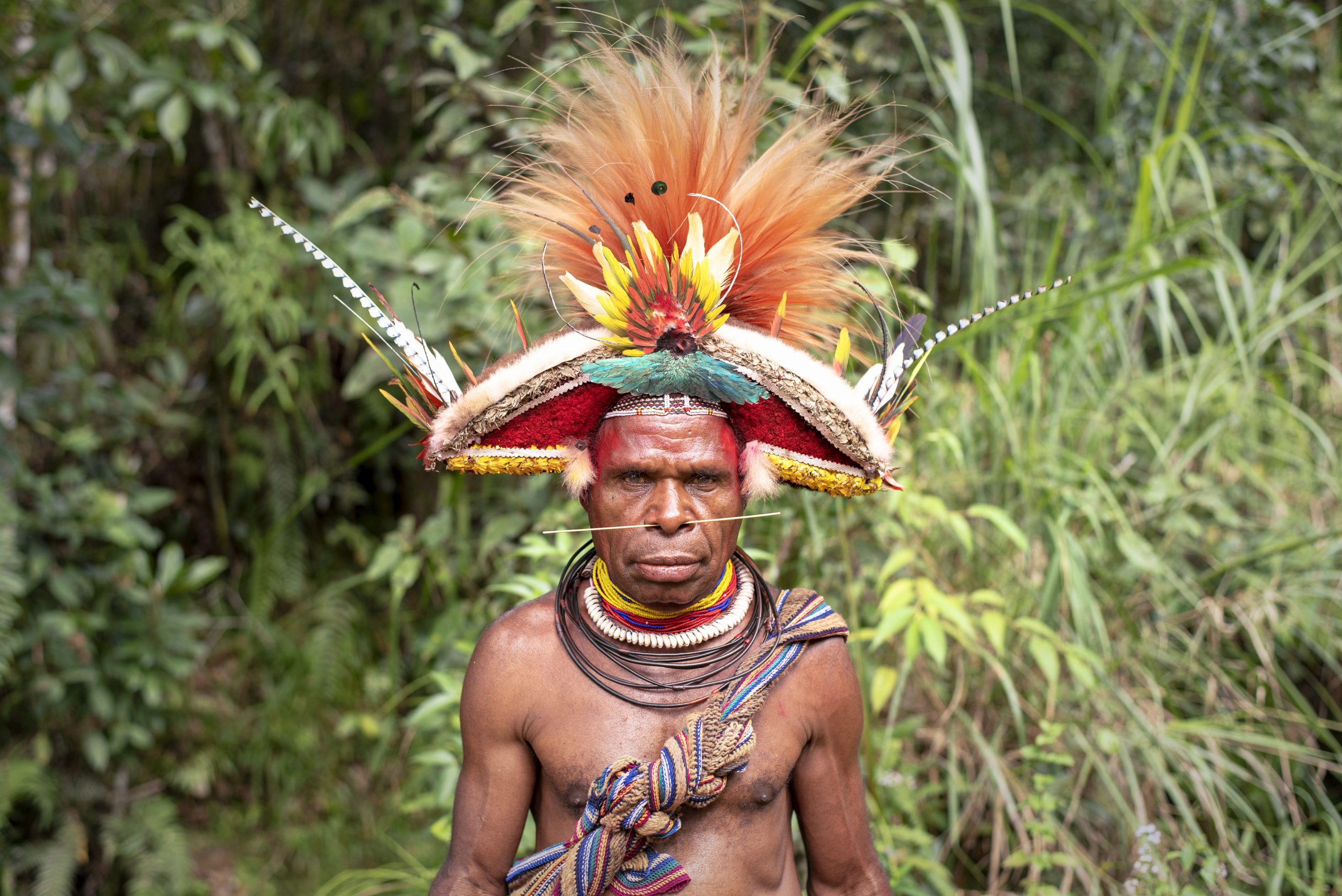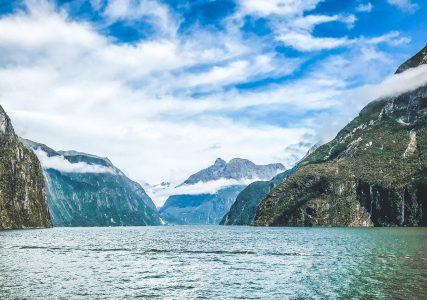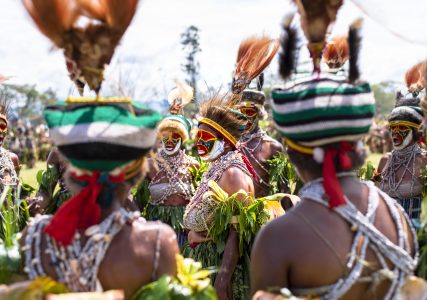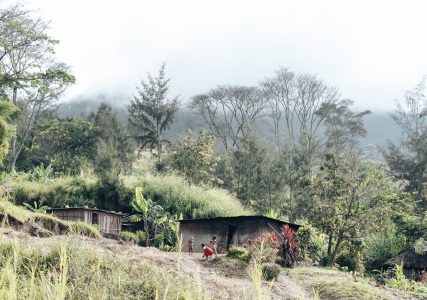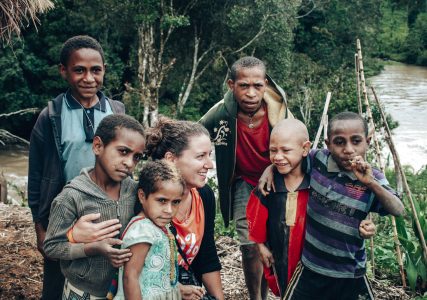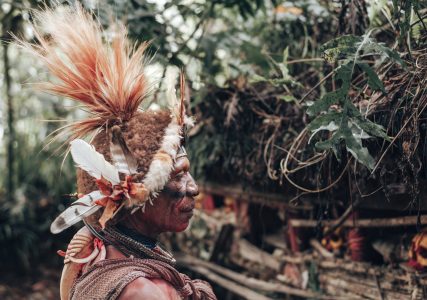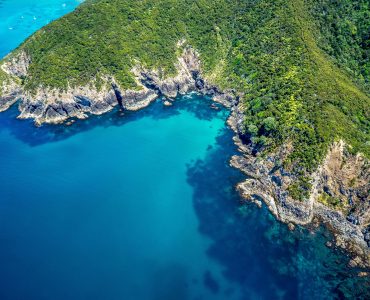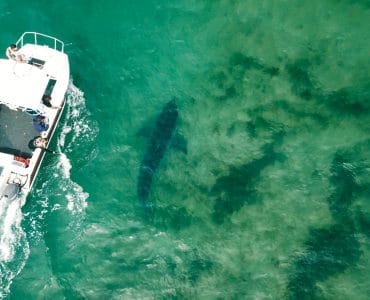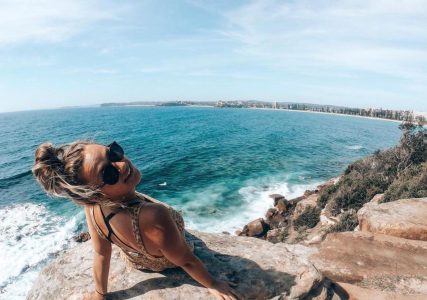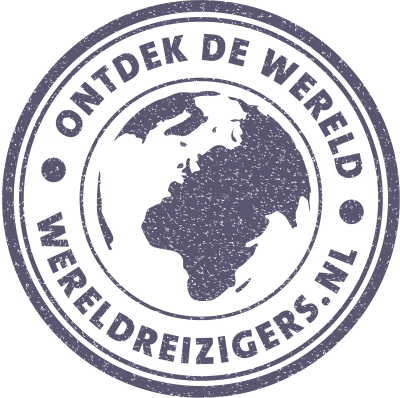We are in Papua New Guinea where nothing goes as planned and everything turns into an adventure. But, before we talk about our very first adventure in Papua New Guinea and police escort, let's first talk about the country. We therefore start with some practical information and tips.
Also read: The (too) crazy adventures of Milene & Yuri
About Papua New Guinea
How do you get there
To in Papua New Guinea It is best to take a flight via Jakarta, Makassar or Denpasar. Through the special Papua New Guinea page from Skyscanner it is best to search for these flights. However, once you arrive in Papua, the most challenging part of the journey is yet to come. The roads are generally bad. The country is known for being virtually impossible to travel by land. The best way to travel from A to B is by plane or boat, although the latter can take a very long time. Boats sail at very irregular times. Often no timetables are known. They are also far from comfortable. A trip to Papua New Guinea is therefore not for everyone.
Only essential trips to Papua New Guinea
The Ministry of Foreign Affairs marks the country as a 'high-risk area', so don't travel there. The Papuans themselves do not understand this. Apart from pickpockets, car accidents and some tribal wars you are in no danger, are you? Nevertheless, our ministry sticks to 'travel only if necessary'. As is often the case, we take the advice into account but don't let it stop us from visiting this beautiful country.
Location Papua New Guinea
Papua New Guinea is an island in the western Pacific Ocean and belongs together with oa Australië en New Zealand to the continent Oceania† Politically, the island is divided between two countries; the western part belongs to Indonesia and includes the provinces of Papua and West Papua. The largest part of the island, the east, is called Papua New Guinea. The island is with an area of 821.400 square kilometers after Greenland largest island in the world and is the capital Port Moresby.
Also read: List of all the capitals of the world + 101 facts and trivia!
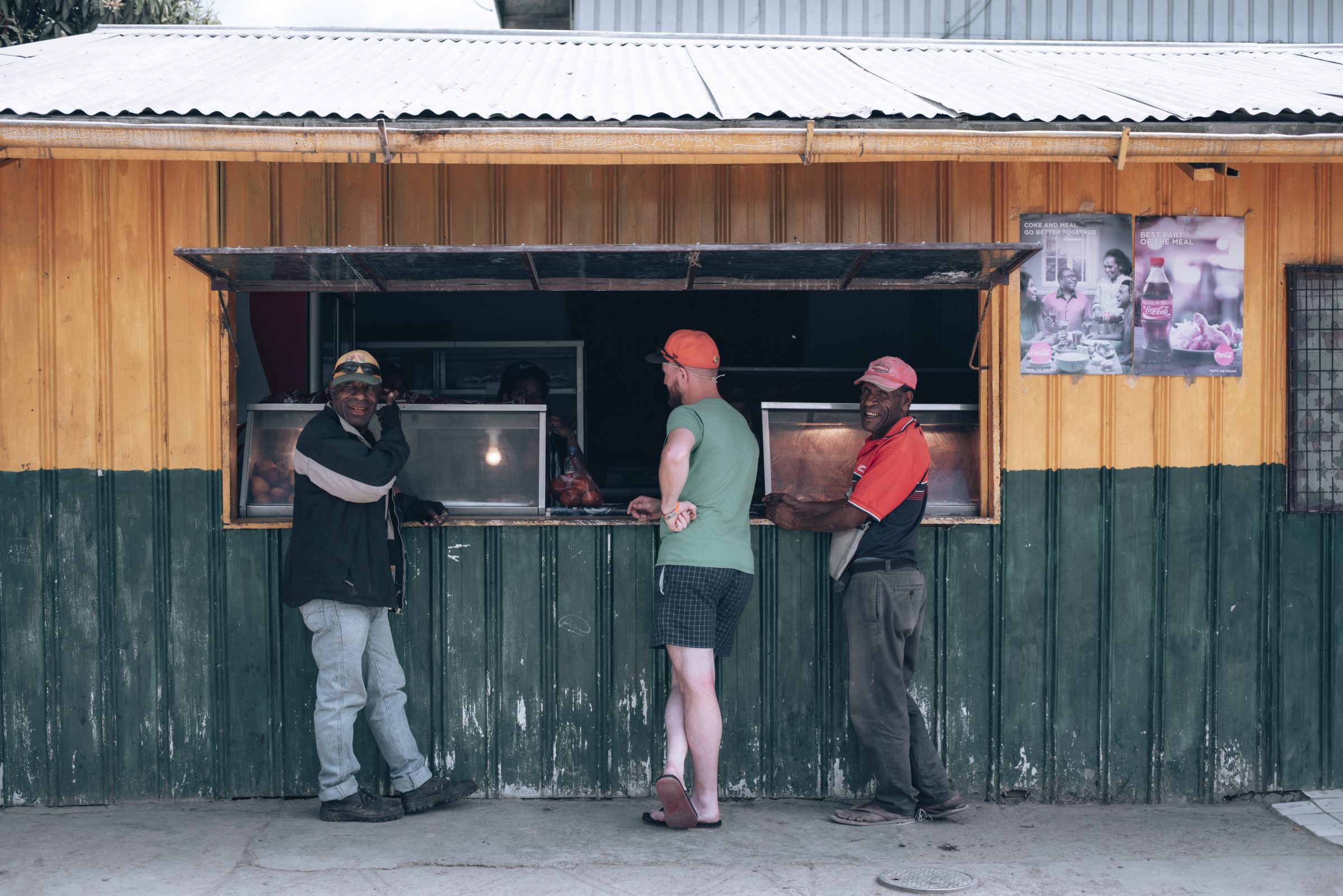
Best time to visit Papua New Guinea
We visited the country in August, the time to visit all the sing-sings (tribal festivals). From May to November you can actually travel quite well in Papua New Guinea. There is always some rain, but less in these months. Most rain falls in the months between December and April, but a lot of rain also means a lot of greenery and a full Sepik River, which is of course also great. For us, the sing-sings determined our travel time.
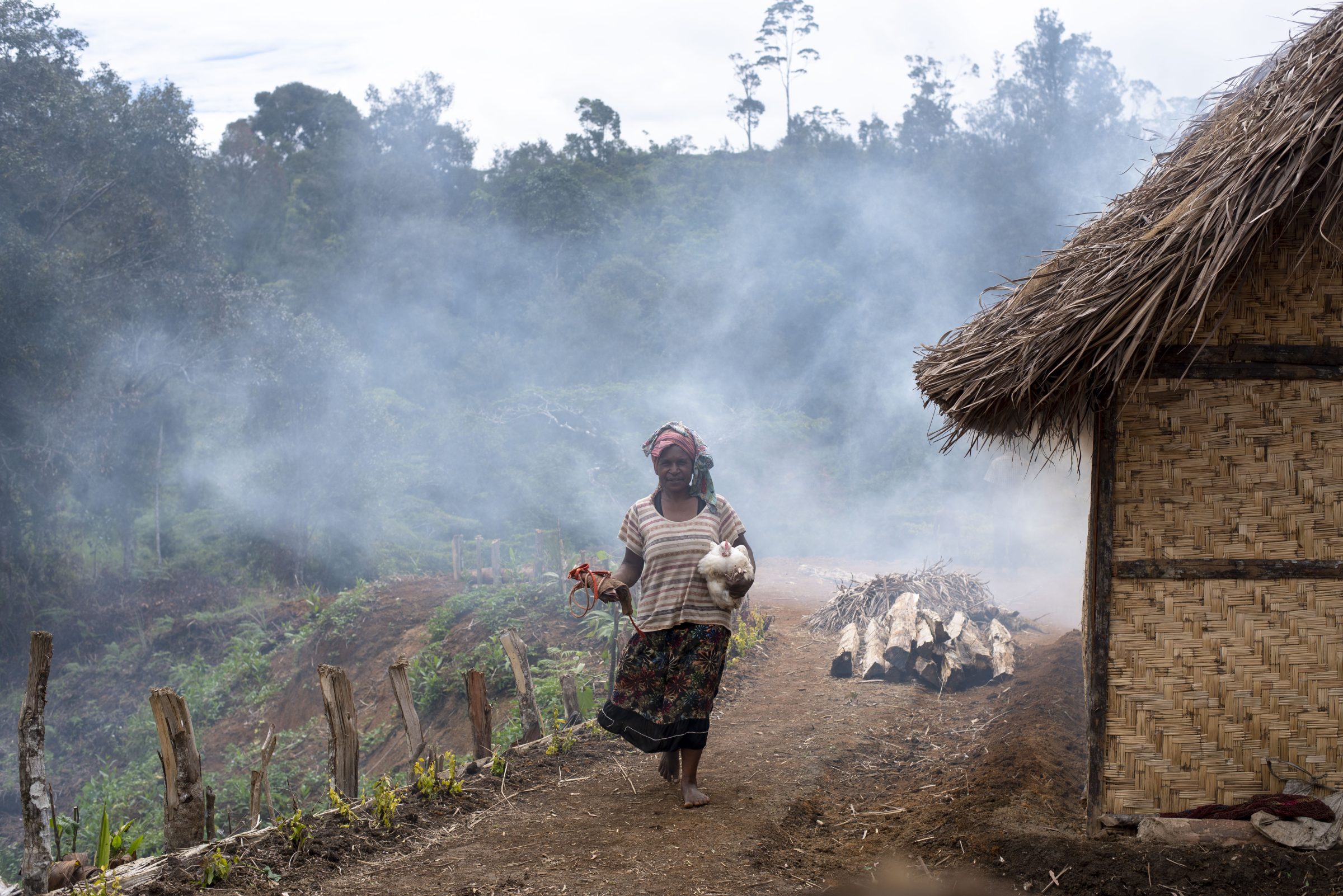
Languages in Papua New Guinea
The top three most spoken languages in the world are Chinese/Mandarin, Hindi/Urdu and English. But did you know that in addition to the official language English, Papua New Guinea has a total of 820 officially recognized languages? No other country in the world has so many officially recognized languages.
Another strange record is that Rotokas is spoken. Rotokas is an East Papuan language and it is the language with the world's smallest alphabet. The language has only 12 letters! Rotokas is spoken by about 4.000 people on Bougainville Island in eastern Papua New Guinea.
Also read: Worldly | Which languages are most spoken in the world?
Welcome to Papua New Guinea
More than 33 hours flying, 8 hours driving and little sleep to get to the destination, Tari in Papua New Guinea. Would you start it? We do!
Our guide, Thomas
Without luggage (it is still in London thanks to British Airways), but with great desire we finally arrive in rainy Mount Hagen. Mount Hagen is a place in the middle of the Highlands of Papua New Guinea and is a stopover for us. We have to wait a while before a little man with a beard comes running. “Melene” he yells when he sees us. His eyes sparkle and we immediately feel at ease. “I'm Thomas” and he shakes a firm hand.
We walk to the car and find out that we have to share the car with the 2nd governor of Tari, also called the President, he has eight wives and his latest acquisition is also in the car with us. There is also a “helper” in the back, in case something happens and Thomas himself.
Later we pick up another acquaintance. And another, and another, until the car is full. That's how it goes here. It doesn't matter that we pay for the ride as if it were a private taxi.
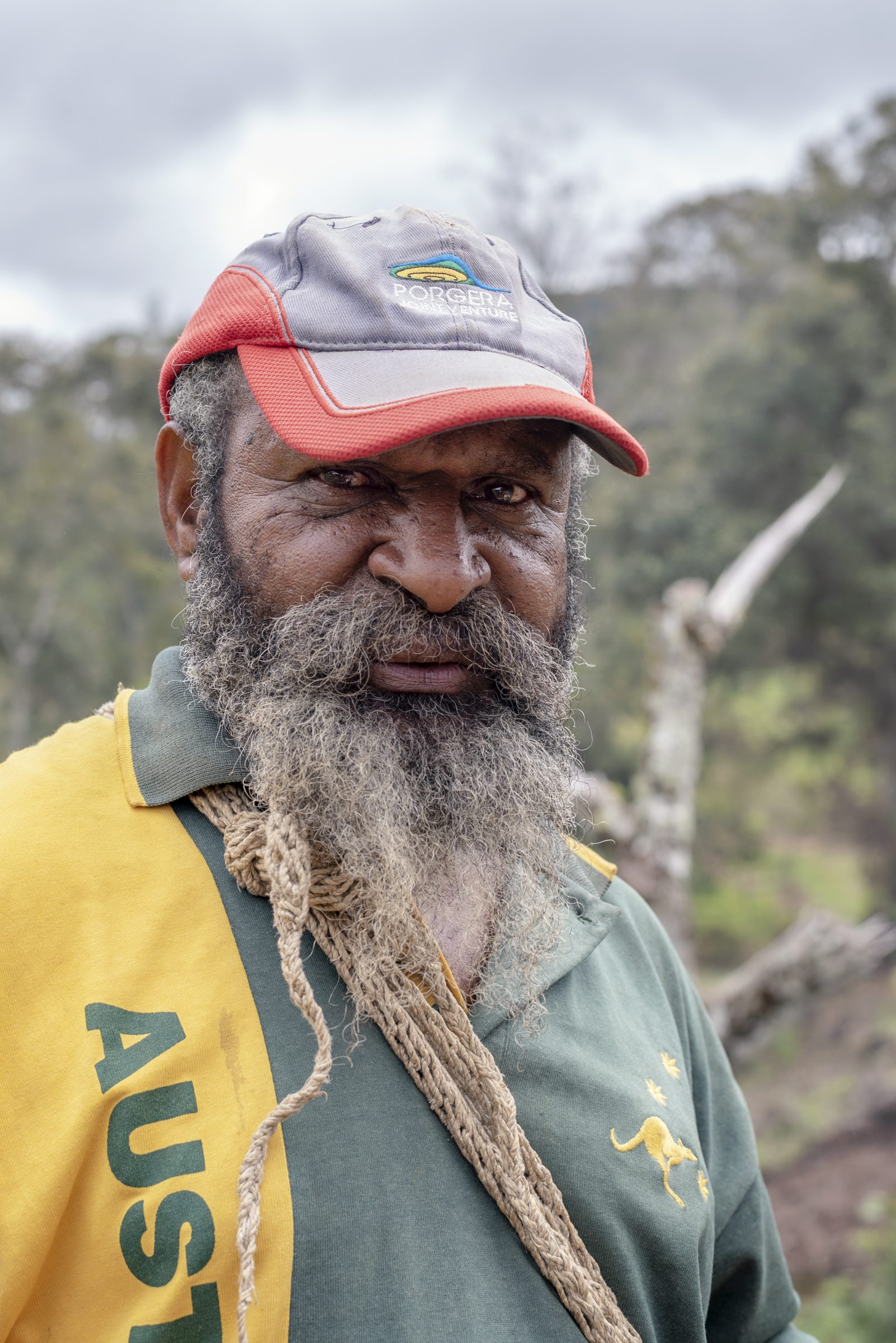
There is a 8-year difference between the governor and his 40th wife. But she's not bad, I guess. He is a nice man and has enough money to support her well. And that's often what it's about. Love will come after that.
Before we start the eight-hour journey, we need to stock up on some groceries. Thomas doesn't want us to get out of the car, because danger lurks in Mount Hagen. No real danger, but danger in the form of pickpockets. Well we have that in The Netherlands also. Still Thomas insists that he does the shopping and we mainly stay in the car with windows closed and doors locked.
After an hour or so we are on our way. At least, until we have to refuel and inflate the tires. Integrating into the life of the Papuans goes quite quickly this way, life where waiting is the norm and time relative.
Bad roads in Papua New Guinea
Two hours later we leave Mount Hagen, which there is not much to say about it except that it is teeming with people, behind us. The road is fine for the first few kilometers. The asphalt looks good and there are few cars on the road. But that soon stops. The earthquake of February 2018 (with a magnitude of 7,5) has created large holes in the road surface and here and there there are whole subsidences in the asphalt. The area is green and the banana plants with here and there wooden houses with thatched roofs flash past us. People are sitting in front of their houses and as soon as they see us they start to wave and laugh.
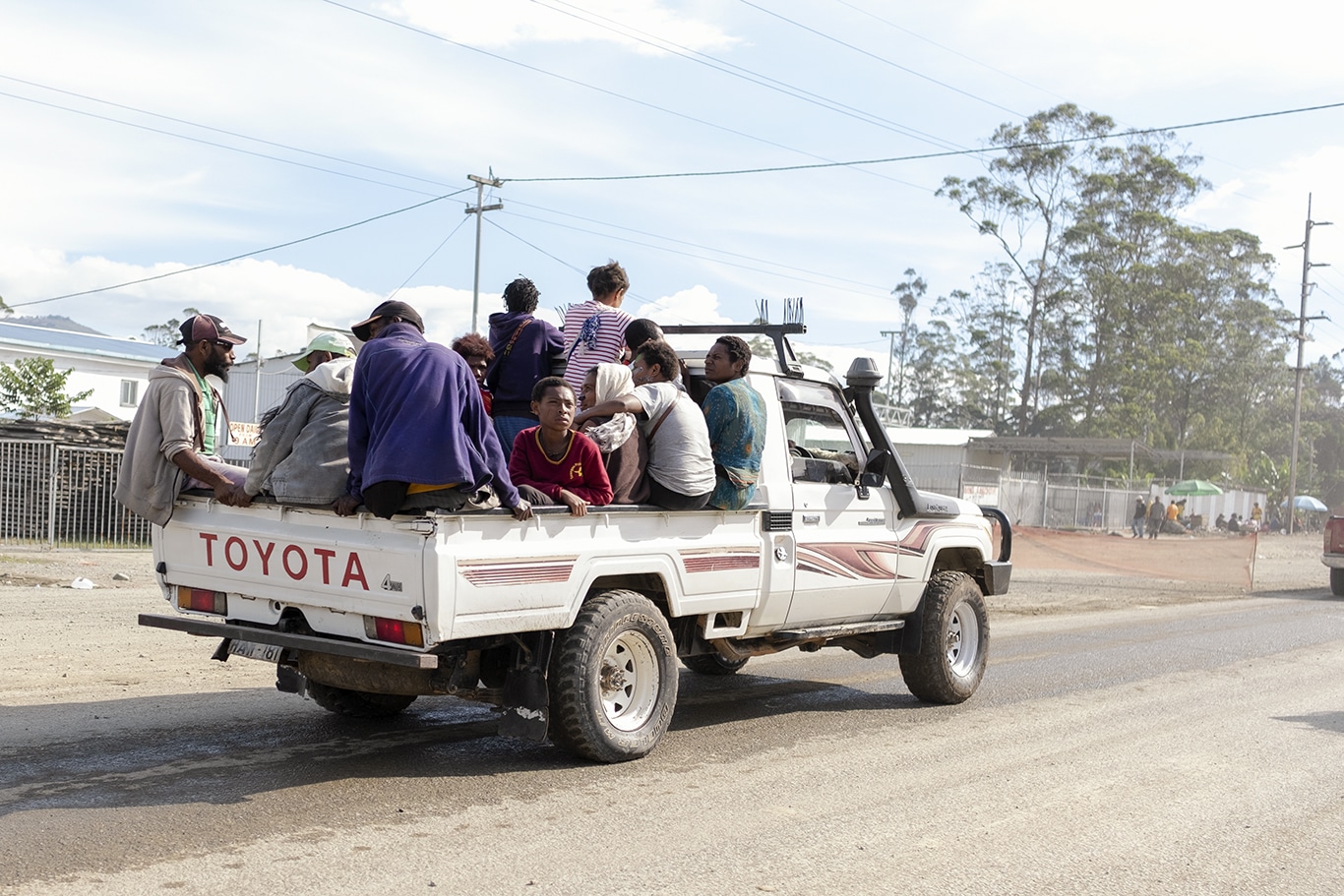
A little further the asphalt stops completely and we are at the mercy of stones, mud and potholes. The governor happily talks about Papua New Guinea (PNG from here) and Thomas lets us hear the latest local hits through his antique Nokia. They all have cell phones. Often more than one, and they ring continuously. Digicel is the major network in PNG and they can make mobile calls, up to a certain amount, for free. Calling country numbers costs money, but you can buy credit everywhere. You can also charge your phone here and there, for 1 kina (0,25€) your phone is fully charged.
Volleyball courts and banana plants
We drive into a beautiful area of beautiful, not too high mountains. We follow a large river inland. Small villages are interspersed with waterfalls, fields and plants. Here and there we also see a basketball and volleyball court, where children are playing. What is striking are the many shoes that hang from electricity cables. We sometimes see this in trees in The Hague, but in a country where shoes are still a certain luxury, I did not expect this. The governor explains that those shoes will then be completely worn out. And when I look closely at the next shoe that is hanging from the electricity cable, I see that the sole of the shoe is half off.
At the last toilet stop, a police car suddenly appears in front of us. “Don't worry, they are my friends” explains the governor.
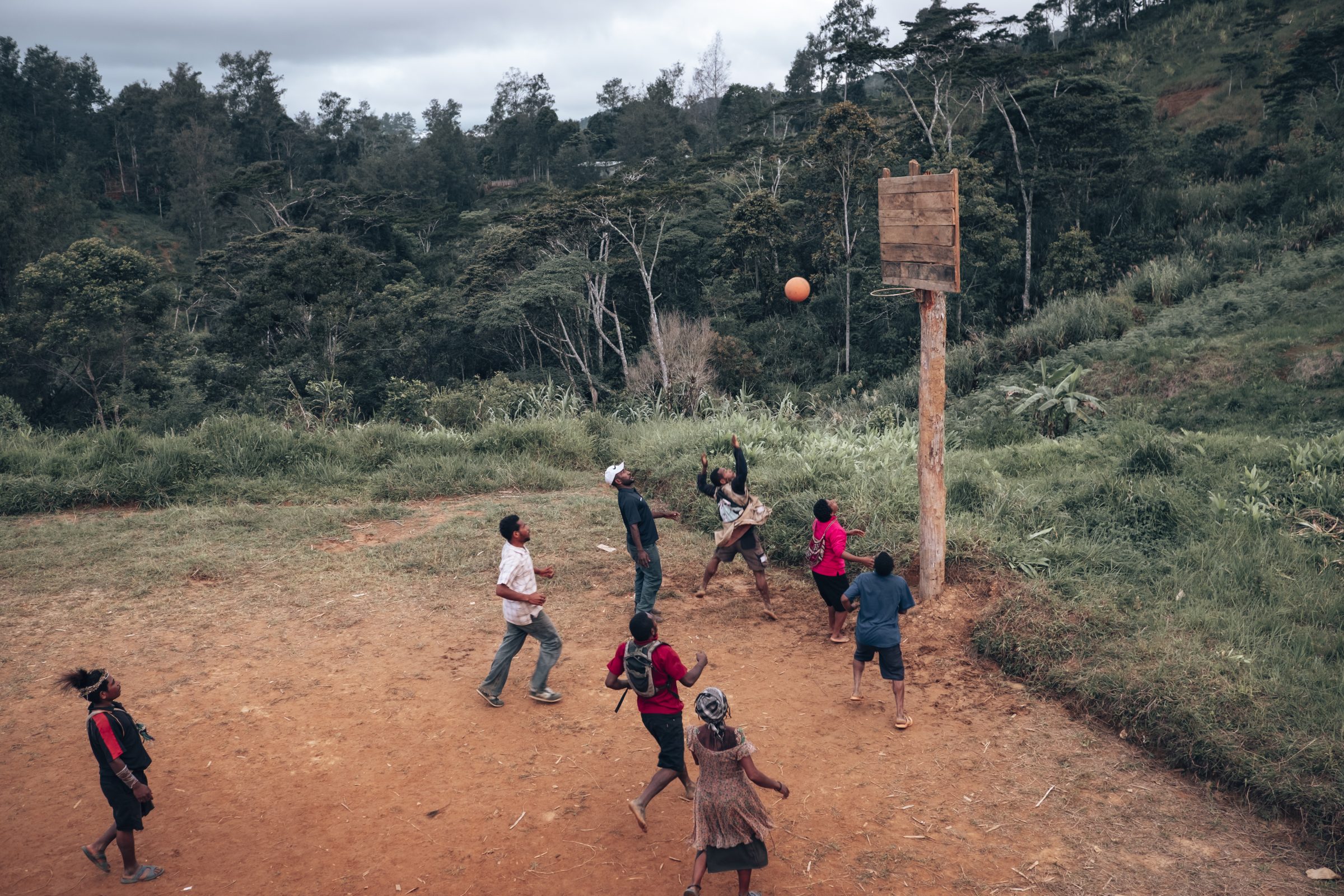
Tari troubles in Papua New Guinea
For a few months now, emotions have been running high between two families in this area. This has to do with a piece of land. Because besides women and pigs, a piece of land is worth fighting for. The two families were unable to resolve the argument verbally, so they began fighting with machetes, bows and arrows, and even homemade guns. Because people have now been killed on both sides, the fight does not end. For when someone is killed, he must be avenged. Eye for an eye. So honor killings.
In addition to the two families, there is a group that the locals call 'rascals'. These 'rascals' take advantage of the situation and rob tourist buses. They don't shoot anyone, at least that hasn't happened yet, but they love to rob you. These rascals walk around with homemade three-barreled rifles in the same area of the feud between the two families. The large luxury lodge that stands here has been closed for several months and the Dutch Ministry of Foreign Affairs has colored this area red and therefore strongly advises against traveling there.
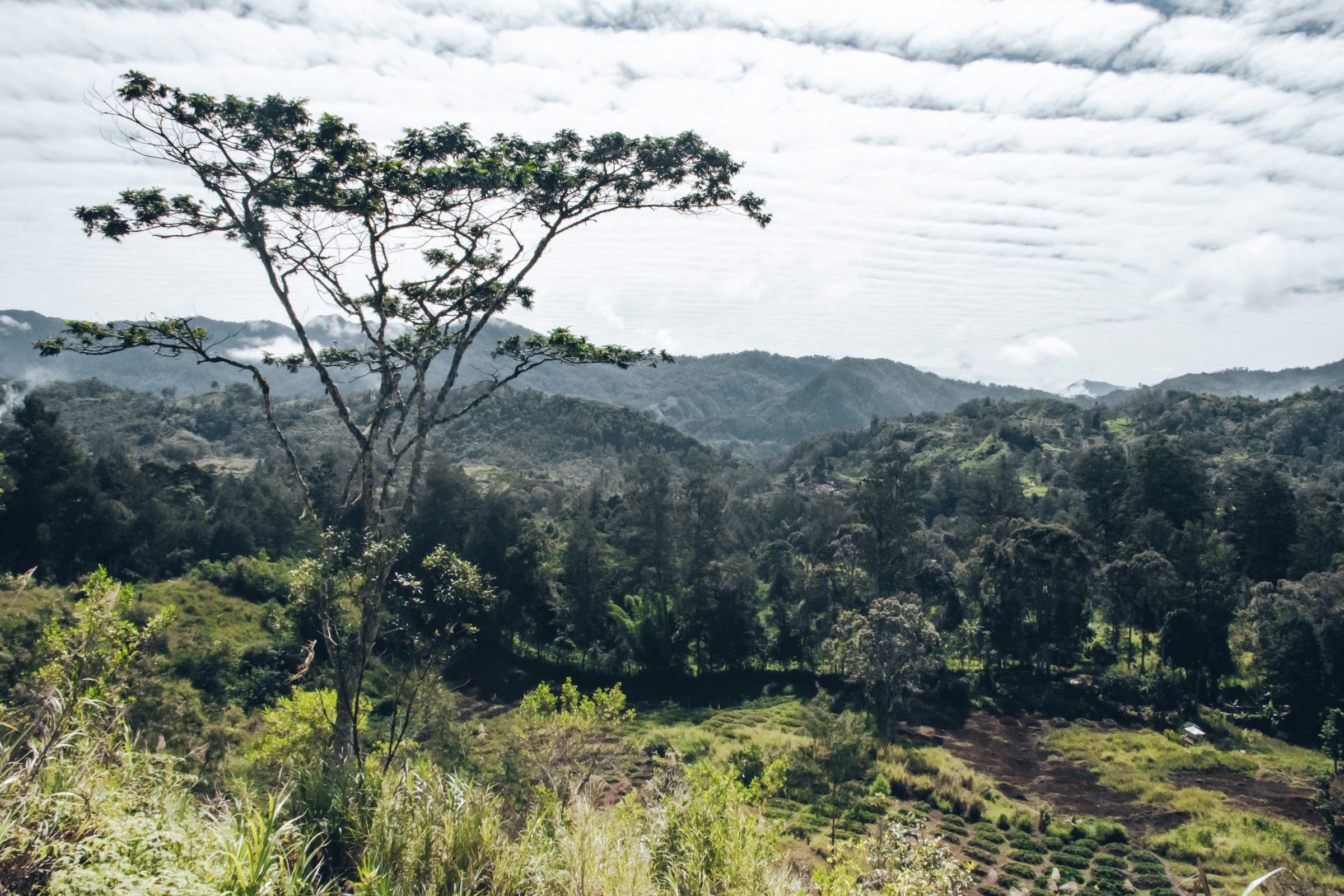
Police escort
So we happily go through the area with a police escort. The governor is convinced that nothing will happen because he is governor and so we are safe too. Still, he has his own rifle and machete safely next to him. "Just in case".
The police drive into the area in front of us, we follow at a distance. It's a completely different area than we drove through before and reminds us a bit of the highlands in Scotland† It is bare, wet, cold but beautiful! The first also ensures that no people live here. Although Thomas says that this is partly because people have moved away because of the war between the families. The ride and escort does not take long. After about 45 minutes we drive into the outskirts of Tari. We thank the police and drive into the largest city of the Hela province.
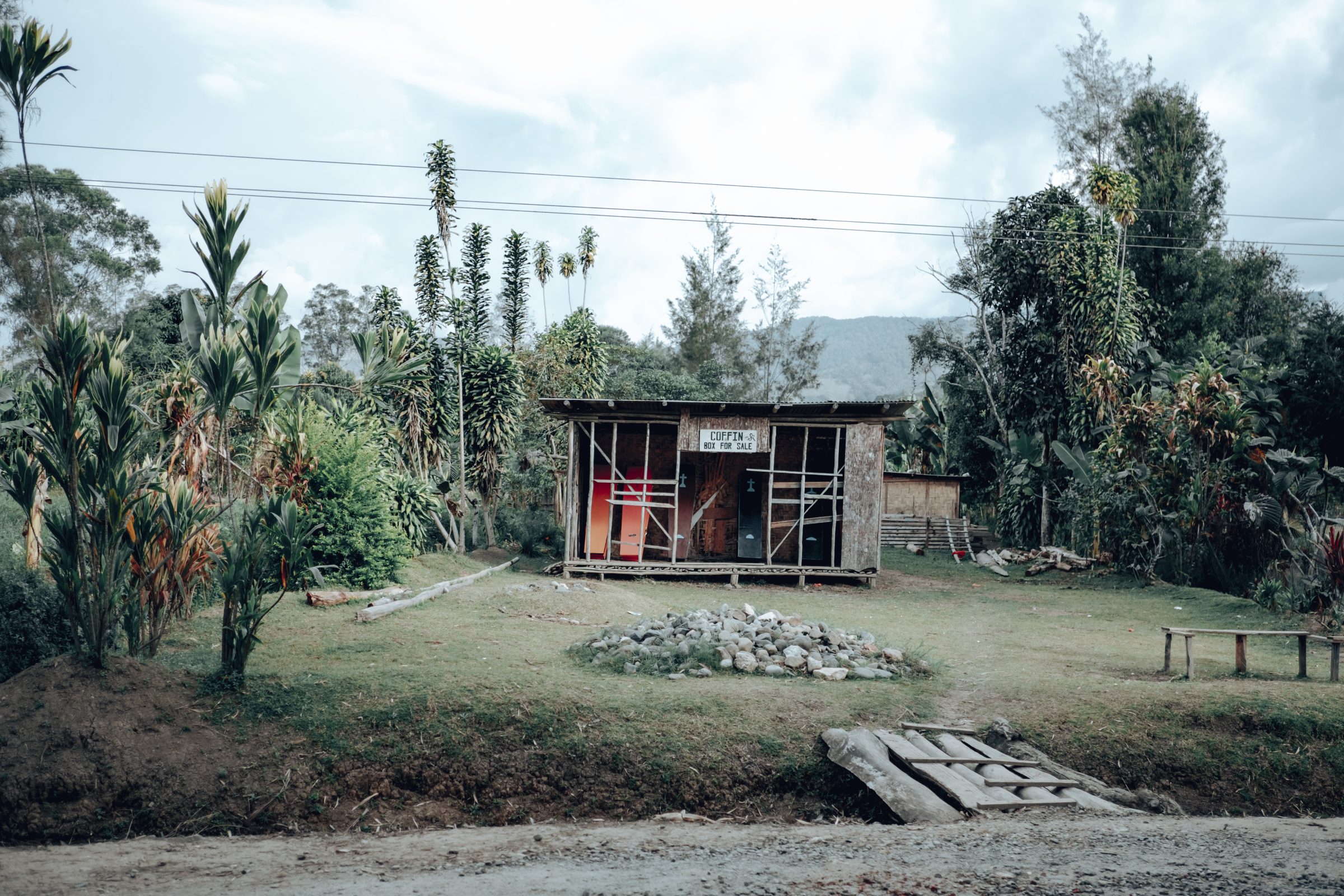
Finally in Tari
The suburbs are green with nice little houses with thatched roofs. The more we get to the center, the bare it gets. In the center we see no houses, but large buildings. A medical center as it turns out later. And they are also building an office. But it will be a while before that is finished. There is a market and items such as food, laundry and of course cigarettes are sold from containers. There is not much else to see and after we have dropped off almost everyone, we start the last leg of the journey.
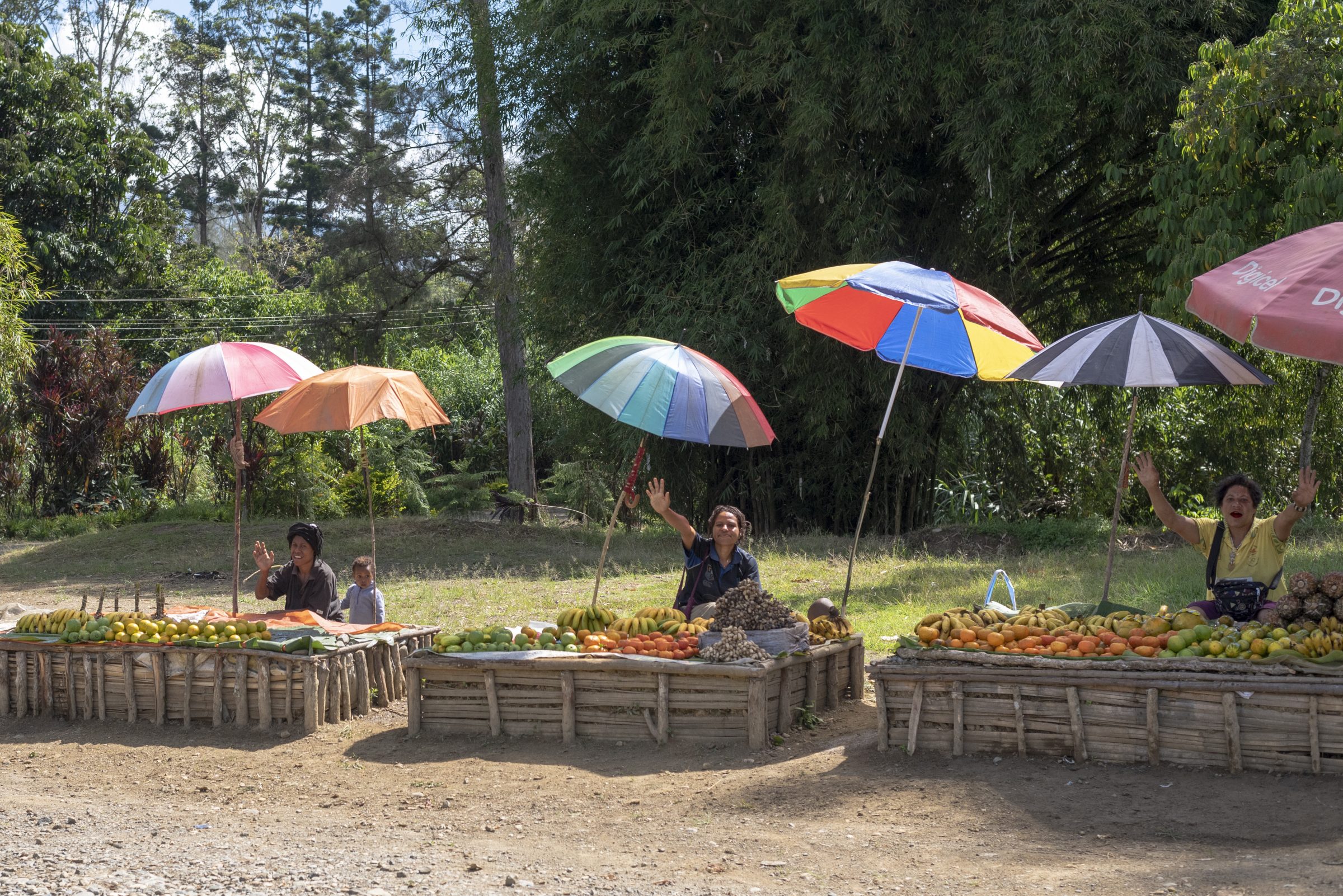
The last leg takes another half hour. We drive past houses and markets and many people are still walking on the street. That while it is already dark and without street lighting and with rain it is difficult to spot these people. People gather around a fire or a shop. Get warm and catch up. There is also food, all together. Because where we mainly do things on social media (and here on wereldreizigers.nl), in Papua New Guinea they mainly share food, clothes and company. Everything belongs to everyone.
Lukwanda Lodge
And then we finally drive onto Thomas's property. At least we stop in front of the door and have to walk a bit ourselves. In the rain and the mud, quite a challenge in the pitch dark.
But here we are. At Lukwanda Lodge, in the middle of the nature reserve of the Hela Province. The beds smell a bit musty, the towel (one for two people) is full of dirty stains and the toilet does not flush. But we are here. After 33 hours of flying, 8 hours of driving and without luggage, we start our adventure in Papua New Guinea.
Until the next blog!


